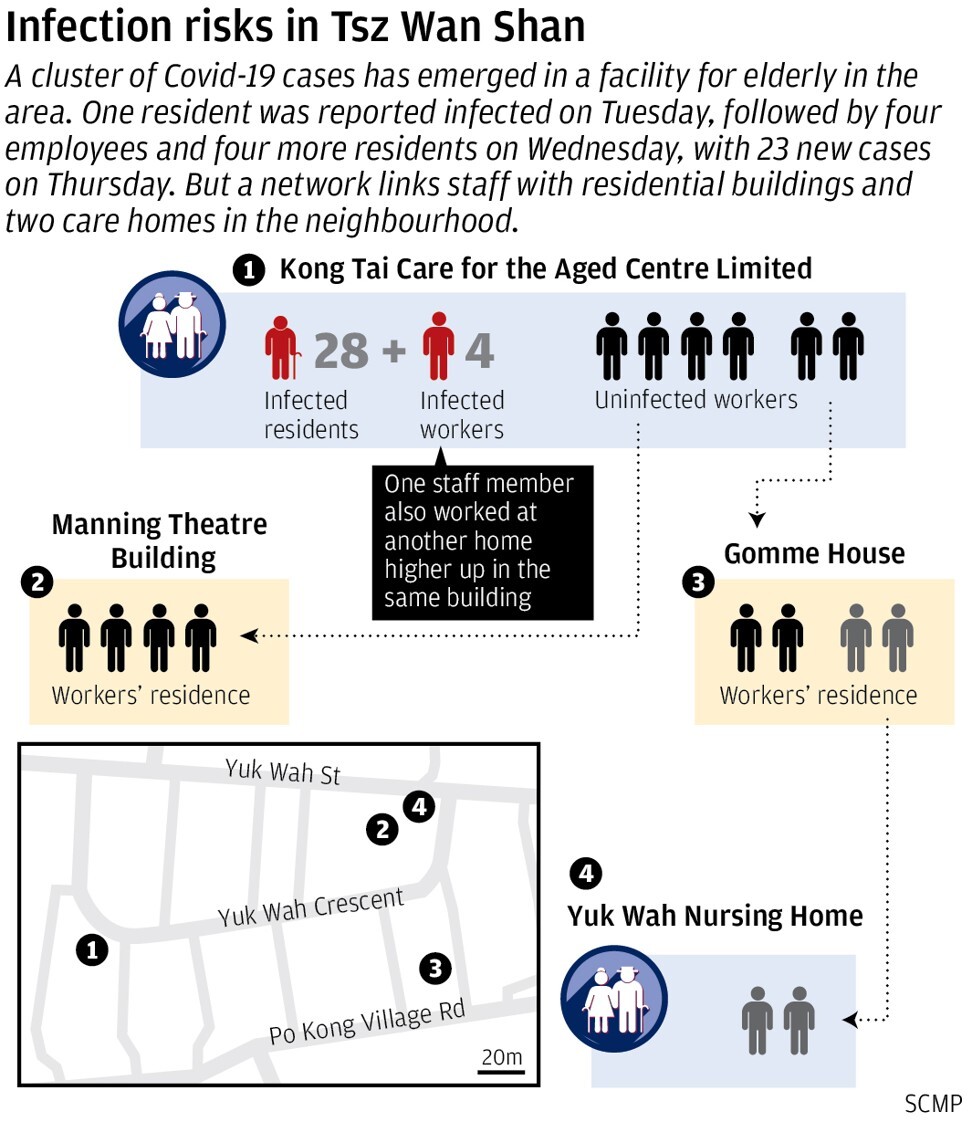
Coronavirus: guidelines to keep Hong Kong elderly care homes free of disease must be made mandatory, experts say
- Government has tightened up the suggestions after single facility hit with 32 infections
- While admitting the homes are under host of constraints, health protection measures cannot remain voluntary, the experts argue
The revised guidelines state such homes should “avoid as far as possible deploying staff to work in different residential care homes”, while people living there should avoid leaving “unless deemed necessary”.
Professor David Hui Shu-cheong, who advises the government on the pandemic, said care homes should be made to follow the guidelines.
“People staying in a care home are a high-risk population,” Hui said. “How could they not follow those guidelines?”
One option was for the government to include adherence to infection-control measures as part of the criteria for renewing the licences of the facilities, he said.
In addition to the infected staff member who crossed between the workplaces, two employees stayed in the same dormitory at Gomme House, near the care home, while another two dormitory residents worked at Yuk Wah Nursing Home, which is owned by the same company. A resident at Kong Tai, confirmed infected, was allowed to freely leave and enter the facility on his own.
When the coronavirus situation has eased, we might demand a full review
Dr Leung Chi-chiu, chairman of the Medical Association’s advisory committee on communicable diseases, said allowing preventive measures in care facilities to be voluntary was unsatisfactory.
“But there are also lots of constraints faced by the sector,” Leung admitted. “Now we can only demand they do the best within their abilities.
“When the coronavirus situation has eased, we might demand a full review.”
Health minister Professor Sophia Chan Siu-chee called on at-risk groups including workers at elderly care homes and restaurants, as well as public transport drivers, to undergo testing. Hui said care home workers should be required to be screened every quarter.
Kenneth Chan Chi-yuk, chairman of the Elderly Services Association of Hong Kong, said care homes should be given flexibility in following the guidelines.
‘Unknown pneumonia’ deadlier than coronavirus sweeping Kazakhstan, Chinese embassy warns
“Implementation of the guidelines could involve different scenarios, and thus care homes be given flexibility to adjust,” Chan said, adding the facilities had limited manpower.
For example, while the guidelines stated that during times of health crises visits should be suspended except for compassionate cases, exceptions should be made. In some situations, spending time with a loved one could ease the emotions of an elderly resident afflicted with dementia.
He agreed that screening would help care homes prevent infections and said some high-risk positions such as drivers and those accompanying residents for medical appointments should be given priority in testing.


